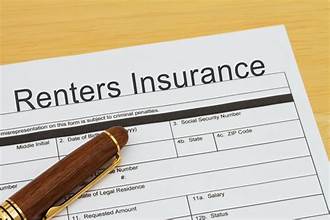Renters insurance is an often overlooked but crucial type of insurance that provides financial protection for tenants. It covers personal property, liability, and additional living expenses if your rental becomes uninhabitable. This guide will help you understand what renters insurance is, why it’s important, and answer common questions about this type of coverage.
What is Renters Insurance?
Renters insurance is a policy that provides financial protection for individuals renting an apartment, house, or other property. It covers losses related to personal property, liability for injuries or damage, and additional living expenses if your rental becomes uninhabitable due to a covered event.
Key Components of Renters Insurance
- Personal Property Coverage: This covers the cost of repairing or replacing your personal belongings, such as furniture, electronics, and clothing, if they are damaged or stolen. Coverage typically includes protection against perils like fire, theft, vandalism, and certain types of water damage.
- Liability Coverage: This protects you if someone is injured on your rented property or if you accidentally damage someone else’s property. It covers legal expenses and damages for which you may be held responsible.
- Additional Living Expenses (ALE) Coverage: If your rental becomes uninhabitable due to a covered event, ALE coverage helps pay for temporary living expenses, such as hotel bills and meals, while your rental is being repaired.
Why is Renters Insurance Important?
- Protects Your Belongings: Renters insurance covers the cost of replacing or repairing your personal items in case of loss or damage. Without it, you would have to pay for these expenses out-of-pocket.
- Provides Liability Protection: Liability coverage helps protect you from financial loss if you are found responsible for causing injury or damage to others. This is especially important if someone is injured in your rental or if you accidentally damage another person’s property.
- Covers Additional Living Expenses: If your rental is damaged and you need to find temporary housing, renters insurance helps cover the costs of living elsewhere, reducing the financial burden on you.
- Affordable Coverage: Renters insurance is generally inexpensive, often costing less than a dollar a day. Given the protection it offers, it is a cost-effective way to safeguard your belongings and financial well-being.
- Landlord’s Insurance Does Not Cover Your Property: While your landlord’s insurance covers the building itself, it does not extend to your personal belongings or liability. Renters insurance fills this gap, providing the protection you need.
How to Choose the Right Renters Insurance
- Assess Your Personal Property: Make a list of your belongings and their estimated value. This helps determine the amount of coverage you need to adequately protect your assets.
- Compare Policies: Different insurers offer varying levels of coverage and premiums. Compare policies to find one that meets your needs and budget. Pay attention to coverage limits, exclusions, and deductibles.
- Check for Discounts: Many insurers offer discounts for various reasons, such as having a security system, bundling with other insurance policies, or maintaining a good claims history. Inquire about available discounts to lower your premium.
- Understand Coverage Exclusions: Review the policy details to understand what is not covered. Common exclusions may include high-value items like jewelry or expensive electronics, which might require additional coverage.
- Consult with an Insurance Agent: An insurance agent can help you navigate policy options and ensure you select the right coverage for your situation. They can provide personalized recommendations based on your needs.
FAQs About Renters Insurance
1. What does renters insurance typically cover?
Renters insurance generally covers personal property loss or damage, liability for injuries or property damage, and additional living expenses if your rental becomes uninhabitable due to a covered event. Specific coverage can vary by policy and insurer.
2. Is renters insurance required by law?
Renters insurance is not legally required, but many landlords require tenants to have it as part of the lease agreement. Even if it’s not mandated, having renters insurance is highly recommended for financial protection.
3. How much renters insurance do I need?
The amount of renters insurance you need depends on the value of your personal belongings, your liability exposure, and potential additional living expenses. Assess your possessions, review your liability risks, and consider potential living expenses when determining coverage limits.
4. Does renters insurance cover natural disasters?
Coverage for natural disasters varies by policy. Most standard renters insurance policies cover events like fire, theft, and vandalism, but may exclude certain natural disasters like floods or earthquakes. You may need separate policies or endorsements for these events.
5. How do I file a renters insurance claim?
To file a renters insurance claim, contact your insurer as soon as possible to report the loss or damage. Provide all necessary documentation, such as photographs, receipts, and a detailed description of the incident. Your insurer will guide you through the claims process and help assess the damage and compensation.
Conclusion
Renters insurance is a valuable and affordable way to protect your personal property, liability, and living expenses while renting a home. Understanding its components, choosing the right policy, and being aware of coverage details can help ensure you are adequately protected. By investing in renters insurance, you safeguard your belongings and provide yourself with peace of mind in case of unexpected events.

Leave a Reply